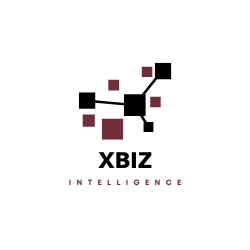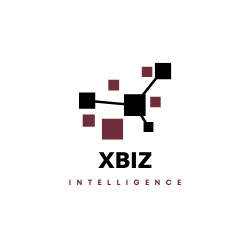

XbizIntelligence News
Your Trusted Source for the lastest Technology & Data News

🎥 Watch Now on YouTube
Inside the Next Wave of Quantum Computing
Inside the Next Wave of Quantum Computing
The world stands on the edge of a computing revolution — one that could make today's fastest supercomputers look obsolete. That revolution is quantum computing, a field that promises to solve problems in seconds that would take classical computers millennia.
In this deep dive, we'll explore how quantum computing works, the latest breakthroughs from tech giants and startups, and how this once-theoretical technology is quickly becoming the foundation for the next era of computing.
📘 Executive Summary
Quantum computing leverages the laws of quantum mechanics — superposition, entanglement, and interference — to perform operations at unprecedented speed. Companies like IBM, Google, and IonQ are pushing the boundaries, racing toward “quantum advantage,” where quantum computers outperform classical systems on real-world problems.
From accelerating AI model training to transforming drug discovery and encryption, quantum computing could reshape industries across the board. However, massive challenges remain: scalability, stability, and accessibility.
This article breaks down what's next for quantum computing — and why it matters now more than ever.
🧭 Content Guide
- Introduction
- What Makes Quantum Computing Different
- Recent Breakthroughs in Quantum Technology
- Quantum’s Impact on AI and Data Science
- The Challenges: Scaling and Error Correction
- Industry Leaders and Startups to Watch
- The Future Outlook
- Conclusion
- Related Reading
Introduction
In 2019, Google announced it had achieved quantum supremacy — demonstrating that its quantum processor could perform a task impossible for a classical computer. While that milestone was debated, it signaled a new age: quantum computing was no longer science fiction.
Since then, progress has accelerated. IBM has unveiled quantum processors exceeding 1,000 qubits, while startups are building stable, scalable systems that promise commercial availability within the decade.
Quantum computing's potential lies not just in raw speed, but in its ability to model complex systems — from molecular chemistry to global logistics — with precision no classical computer can match.
What Makes Quantum Computing Different
At its core, a quantum computer processes data using qubits instead of classical bits. While bits can represent either 0 or 1, qubits can exist in multiple states simultaneously due to superposition.
This allows quantum computers to perform vast parallel computations. Add entanglement, where qubits become linked and influence each other's states, and the computational power scales exponentially.
Classical vs. Quantum
| Feature | Classical Computers | Quantum Computers |
|---|---|---|
| Data Unit | Bit (0 or 1) | Qubit (0 and 1 simultaneously) |
| Power Scaling | Linear | Exponential |
| Processing | Sequential | Parallel |
| Example | i9 CPU | IBM Quantum Eagle / Google Sycamore |
These differences allow quantum machines to tackle problems like:
- Cryptography and encryption
- AI model optimization
- Financial risk modeling
- Protein folding and drug discovery
Recent Breakthroughs in Quantum Technology
The last few years have seen remarkable advancements across multiple quantum computing platforms.
1. IBM Quantum Condor (2023–2025)
IBM unveiled its 1,121-qubit Condor processor — a milestone demonstrating scalability in superconducting qubits. IBM’s roadmap aims for 100,000-qubit systems within a decade, moving toward full quantum-centric supercomputing.
2. Google’s Quantum AI Lab
Google continues developing error-corrected quantum processors, improving stability and fidelity. Its recent “Quantum Advantage” demonstrations show practical progress toward outperforming classical supercomputers in simulation tasks.
3. IonQ and Trapped Ion Systems
Startups like IonQ and Quantinuum focus on trapped-ion quantum computing, using individual atoms as qubits. These systems offer longer coherence times and high accuracy, making them promising candidates for early commercial quantum hardware.
4. Quantum Networking and Entanglement
Beyond processors, breakthroughs in quantum networking enable entanglement-based communication — forming the backbone of a potential quantum internet.
Quantum’s Impact on AI and Data Science
Quantum computing isn’t just about speed — it’s about enabling new forms of intelligence.
Quantum algorithms like Grover’s and Shor’s already outperform classical ones in search and encryption. Now, researchers are developing Quantum Machine Learning (QML), where qubits accelerate data processing and model optimization.
Use Cases in AI and Analytics
- AI Model Training: Quantum systems reduce training time for deep learning models.
- Optimization Problems: Ideal for logistics, supply chain, and energy grids.
- Drug Discovery: Simulating molecules and predicting reactions with precision.
- Financial Forecasting: Complex risk models and portfolio simulations.
As these tools become accessible via cloud services, data professionals may soon run hybrid pipelines — part classical, part quantum — using frameworks like Qiskit or PennyLane.
The Challenges: Scaling and Error Correction
Despite rapid progress, the path to practical quantum computing is steep.
Key Challenges
- Decoherence: Qubits are fragile and lose state within microseconds.
- Error Rates: Even minor interference can cause computation errors.
- Scalability: Building thousands of stable qubits is extremely difficult.
- Cost: Quantum systems require cryogenic cooling and complex infrastructure.
To overcome this, researchers are developing quantum error correction (QEC) — encoding logical qubits using multiple physical ones to protect against errors. While current hardware may handle hundreds of qubits, millions may be needed for stable commercial systems.
Industry Leaders and Startups to Watch
Beyond IBM and Google, dozens of companies are shaping quantum’s commercial ecosystem:
- Rigetti Computing: Offers cloud-accessible quantum processors.
- D-Wave Systems: Specializes in quantum annealing for optimization.
- PsiQuantum: Pursuing photonic quantum systems using light-based qubits.
- ColdQuanta: Developing quantum sensors and networking devices.
Governments are investing heavily too. The U.S. National Quantum Initiative Act and EU’s Quantum Flagship fund billions in quantum R&D, recognizing its strategic importance.
The Future Outlook
The next decade will see quantum computing move from labs into enterprise use.
Analysts predict the quantum computing market will grow from $1.6 billion in 2025 to $65 billion by 2035. As costs drop and cloud access expands, organizations will integrate quantum processing into mainstream applications.
We’re also seeing the rise of Quantum-as-a-Service (QaaS) platforms — allowing developers to experiment with quantum algorithms via the cloud, without needing physical hardware.
What Comes Next
- Hybrid Systems: Combining classical and quantum computing.
- Quantum AI Models: Quantum-enhanced generative AI.
- Quantum Internet: Secure, entangled communication networks.
- Mainstream Integration: Data centers with quantum co-processors.
Quantum computing won’t replace classical computing — it will augment it, unlocking capabilities that redefine how we process information.
Conclusion
Quantum computing represents humanity’s next great technological leap. Like the early days of electricity or the internet, we’re witnessing the foundation of a new paradigm.
As stability improves and access broadens, quantum computing will transform industries, accelerate AI, and redefine what’s computationally possible.
For now, it’s not just a question of if — but how fast we can get there.
🔗 Related Reading
- Internal Link 1: The Rise of AI-Powered Processors
- Internal Link 2: Apple’s M4 Chip Ushers in a New Era of AI-Powered Computing
- External Link 1: IBM Quantum
- External Link 2: Nature: Quantum Computing Breakthroughs
💡 CTA: Stay Ahead of the Quantum Revolution
Subscribe to Xpert Business Intelligence to receive weekly insights on quantum, AI, and emerging technologies shaping the future.
📚 Next Reads
FAQs About SEO in 2025
What is the #1 SEO ranking factor?
Answer: Helpful, authoritative content that satisfies user intent.
Is link building still important?
Answer: Yes, but relevance and quality matter more than sheer quantity.
How often should I update content?
Answer: At least every 6–12 months to keep it accurate and competitive.
ADVERTISEMENT
Most Read
Stay in the Loop
Get the latest tech and data stories, events, and updates straight to your inbox.


Join the conversation